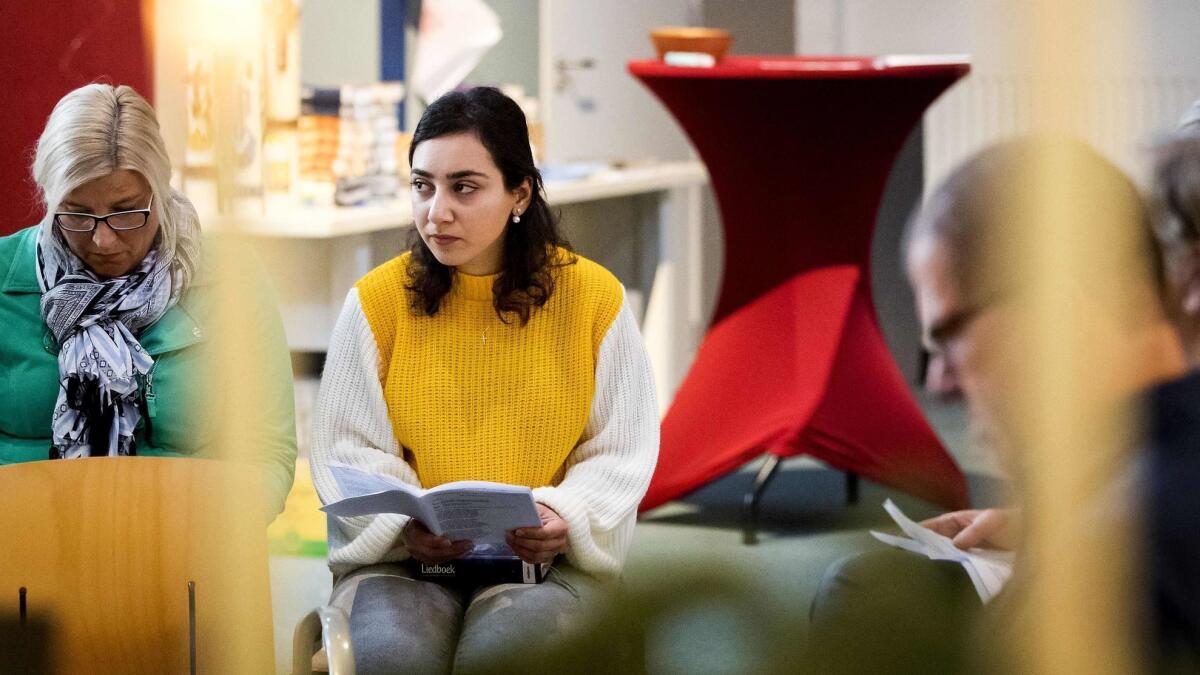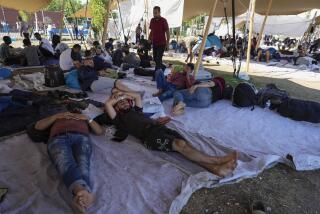Dutch 24/7 church service ends after three months as government changes asylum policy

- Share via
Reporting from The Hague — A Dutch Protestant church ended a round-the-clock service Wednesday that started in October to protect from deportation a family of Armenian asylum-seekers after the government announced changes to its immigration policy.
The Bethel Church, a small chapel in a Hague neighborhood, announced the end of the 24/7 service a day after the Dutch ruling coalition announced it will review hundreds of asylum applications by children that previously were rejected.
“We are incredibly grateful for a safe future in the Netherlands for hundreds of refugee families,” church official Theo Hettema said in a statement.
The church service began Oct. 26 to protect the Tamrazyan family — including the parents, their two daughters and a son. Dutch law prohibits authorities from entering a church building while a service is underway.
At a news conference late Tuesday, the government minister in charge of immigration issues, Mark Harbers, said authorities will again review the cases of many children whose applications were rejected because they had not cooperated with efforts to send them back to their home countries. Dutch media reported that about 700 children will be affected.
“The expectation is that a large number of the rejected children will be eligible” for a residency permit, Harbers said.
On Wednesday, he told lawmakers that authorities will not deport any of the children or their families while the review is conducted.
The Tamrazyans have lived in the Netherlands for nearly nine years as their asylum application and various appeals proceeded through the country’s courts. Last year, the country’s highest administrative court ruled they must return to their home country, which is considered safe by the Dutch government.
More to Read
Sign up for Essential California
The most important California stories and recommendations in your inbox every morning.
You may occasionally receive promotional content from the Los Angeles Times.








